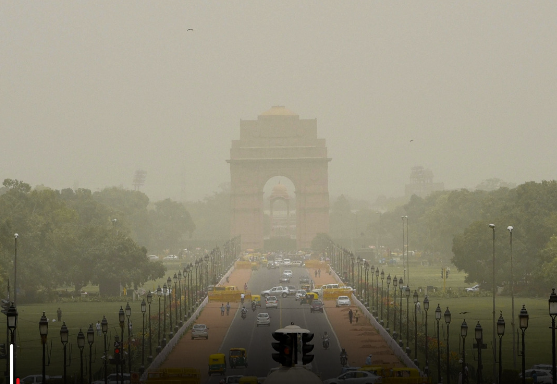Delhi Desk, Delhi Magazine: The Graded Response Action Plan (GRAP) prepared to control pollution during winter in Delhi-National Capital Region (NCR) came into effect from Sunday. The Commission for Air Quality Management (CAQM), the autonomous body responsible for improving air quality in Delhi and surrounding areas, has made some significant changes in GRAP last year and in July this year. Under the new changes, the ban on old vehicles will be strictly enforced as soon as the Air Quality Index (AQI) crosses 200 and there will be a complete ban on the use of coal and wood in hotels and restaurants.
Similarly, as soon as AQI crosses 400, BS-3 standard petrol and BS-4 standard diesel vehicles will be banned in Delhi, Gurugram, Faridabad, Ghaziabad and Gautam Buddha Nagar. CAQM is a legal body, which was established under the Act of 2021. The Commission proactively implements anti-pollution measures based on forecasts three days in advance. Earlier, authorities would impose measures such as banning construction and demolition activities, entry of high-emission vehicles and burning of coal and wood only after pollution reached a certain point.
The GRAP for the National Capital Region (NCR) has classified Delhi under four tiers of adverse air quality: Tier 1 – ‘Poor’ (AQI 201-300), Tier 2 – ‘Very Poor’ (AQI 301-400). ), the third stage – ‘severe’ (AQI 401-450) and the fourth stage – ‘very severe’ (AQI more than 450). Under the first phase in the revised GRAP, it has been recommended to strictly implement the orders of the Supreme Court and the National Green Tribunal (NGT) on old diesel and petrol vehicles.
You would also like to read: top best places to visit in Delhi for couples.
Coal and wooden Burning banned in hotels and factories
It calls for a complete ban on burning coal and wood in hotels and restaurants as soon as the AQI crosses 200. Earlier, authorities used to implement this measure under the second phase. CAQM has also suggested conducting online classes in schools for children up to class V in the third phase under the revised GRAP. As soon as the AQI crosses 450, electric and CNG and BS-4 diesel vehicles, apart from four-wheelers registered outside Delhi, will not be allowed to enter the national capital. However, vehicles carrying essential goods or essential services will be exempted. All other measures already in place under various phases of GRAP will continue.
CAQM said on Saturday that the average AQI in Delhi-NCR between January 1 and September 30 this year was 167, which is the second best AQI during this period in the last six years.
Continuing with the trend of an overall improvement in the air quality of NCR, Delhi registers its best daily avg AQI for the period January – September 2023 as compared to the corresponding period during the last 6 years i.e., from 2016 to 2023 (barring the COVID affected 2020)
— Commission for Air Quality Management (@CAQM_Official) September 30, 2023
The better air quality during this period was recorded during the pandemic-hit year 2020. The average AQI during this period in the years 2022, 2021, 2019 and 2018 was between 180 to 193. CAQM has also given a three-month relaxation for the use of diesel generators in nine critical categories of emergency services, reducing concerns of disruption in power supply in essential areas in NCR. It had earlier said that essential services would also be covered under the ban on diesel generators to tackle winter air pollution.

